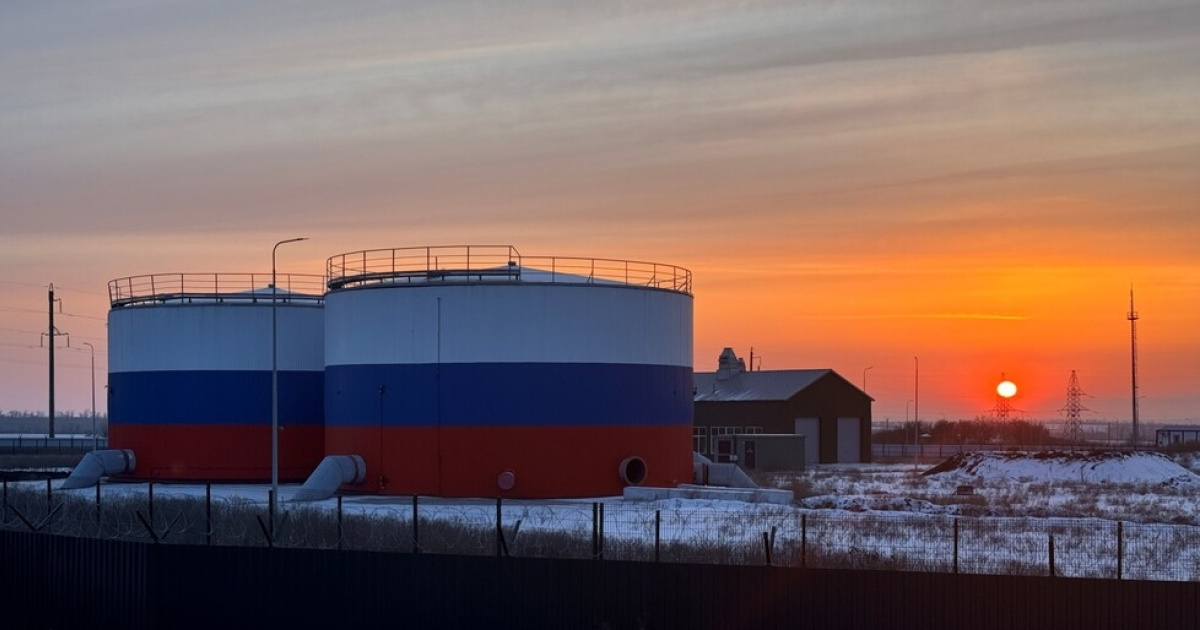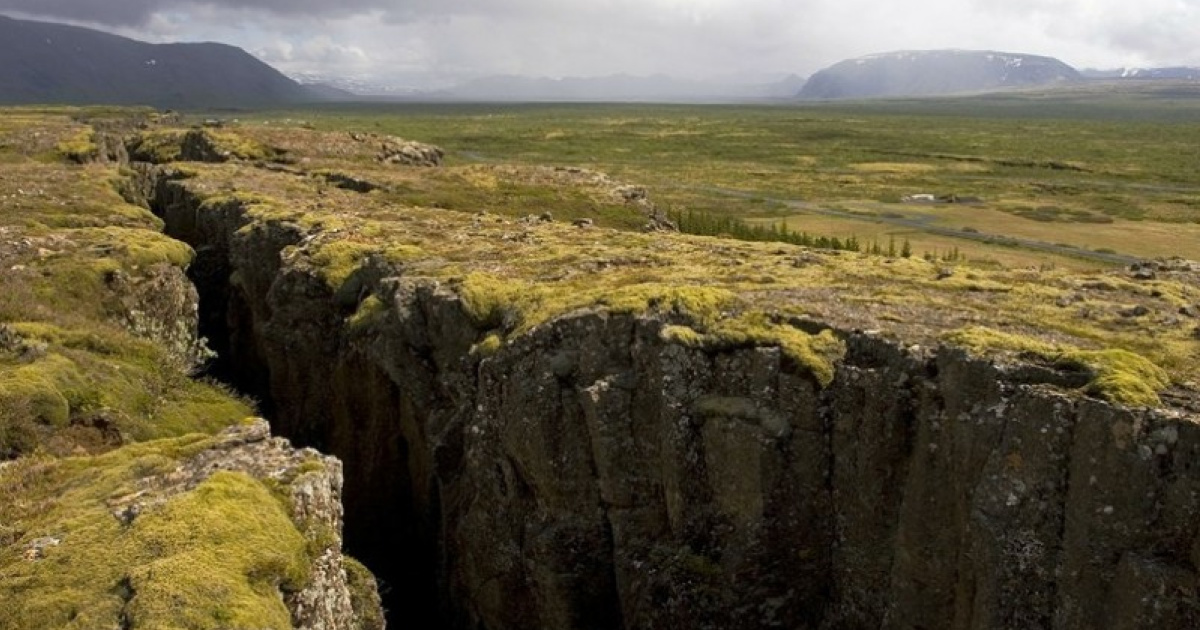While Ukrainians and the entire world await the beginning of active counteroffensive actions by the Armed Forces of Ukraine, the war has unexpectedly shifted to the territory of the russian federation. The Russian Volunteer Corps and the Freedom of Russia Legion have been conducting a special operation in the Belgorod oblast for several days.
Simultaneously, conflicting information is coming from Bakhmut, where fierce combat has been taking place for several months. The russians claim to have captured the city and celebrate a "great victory", while the Ukrainian side speaks of advancements on the flanks and the encirclement of Bakhmut.
In an interview with OstroV, reserve AFU colonel and military expert Roman Svitan discussed the current situation on the front line, the connection between the raid of the Russian Volunteer Corps in the Belgorod oblast and the Ukrainian Armed Forces' offensive operations and liberation of occupied territories, as well as the possible development of combat actions until the end of 2023.

- What is happening in the Belgorod oblast of russia?
- It's quite simple. The russians who have been fighting against the russian army for almost ten years have entered there. In 2014, many people with russian passports joined the battalions that were being organized in the Donbas at the time – they wanted to fight against russia. Many of them had experience from the Georgian and Chechen wars. In 2022, after a full-scale invasion, they organized themselves into the Russian Volunteer Corps as part of the International Legion. They previously entered the Bryansk and Kursk oblasts.
- What did they enter with? Russian propagandists talk about them having Western military equipment.
- This is all russian equipment that they captured near Bakhmut, the so-called "lend-lease from russia". They have everything russian there. And it turned out well: last year, the russians came to us with russian equipment, and now the russians have entered the Belgorod oblast, also on the same russian equipment.
- What is their objective?
- I think their objective is combat reconnaissance. For that, they need a minimum of a storming company and a maximum of a storming battalion.
- Why now, specifically?
- The guys left Bakhmut and decided to "take a break" in this way. I think they have been eager to go to Belgorod for a long time.
- Don't you see a connection between this raid and the Ukrainian army's counteroffensive?
- There is a direct connection. Let's talk about an offensive rather than a counteroffensive by the Ukrainian army. The offensive by the Armed Forces of Ukraine began in the first decade of May, as soon as the ground dried up. A counteroffensive is when the enemy launches an offensive against you, and you stop them, start driving them back, and enter their territory. It doesn't exist and it won't happen.
What is happening now is the Ukrainian forces' offensive, which involves preparation, formation of the battlefield, destruction of enemy forces and assets by long-range means of attack. And what everyone is waiting for is a breakthrough, one of the stages of the offensive.
Lately, we have witnessed a stage of combat reconnaissance, and it has developed well in the Bakhmut area. It is not yet a breakthrough, just local battles. What is happening in the Belgorod oblast is also combat reconnaissance, but carried out by the hands of russians with russian weapons. By the way, based on the paradigm, something similar should happen with the Kursk and Bryansk oblasts.
- Why?
- It is necessary to stretch russian forces to the Bryansk oblast, add hundreds of kilometers to their front line, so that they remove military units from the occupied territories, bring them into russia, and do not hinder our breakthroughs. It is called reducing troop density. Everything is logical according to the offensive paradigm.
- Can we say that the Armed Forces of Ukraine have completely withdrawn from Bakhmut?
- No, Ukrainian troops are still there. To leave Bakhmut, you need to go beyond the city limits, to the highway towards Kostiantynivka. The city ends after the the so-called "Litak" area on that direction. And we still control the highway itself and the area around the "Litak".
- Why is it so important to control that area?
- If you look at the map, you will notice that it is a high ground. We are currently moving along these heights to encircle Bakhmut. It is crucial for us to hold this area so that the russian forces do not advance further. It's not about the city itself, but about the high ground. Even if there were no Bakhmut, we would still stay on these heights.
- Why?
- Firstly, it is more advantageous to defend from high ground. Secondly, it is better to launch an offensive from elevated positions. And now we are starting to carry out this task - moving along the heights in all directions. It's not even a strategic task, but an operational one. By holding the high ground, we encircle Bakhmut. And the area around the "Litak" is one of those elevated positions. So the russians do not have full control over the city.
- Do the russians have a chance to advance further towards Sloviansk and Kramatorsk?
- We are currently advancing along the heights towards Popasna, just slightly south and north of Bakhmut. After that, we will switch to a defensive mode. The russians will definitely not try to seize Sloviansk and Kramatorsk, it is out of the question. We will cut them off from the heights and push them back into the Bakhmutka River.
Currently, we are improving the defensive line in the Bakhmut area and moving along the heights towards the enemy. Interestingly, the city itself is not needed as a defensive position for either the Ukrainian or russian forces. They will linger in Bakhmut for a while and then withdraw to Popasna, just like what happened with Zmiinyi Island. I believe the russians will leave there in about a month; it will be disadvantageous for them to stay when we shell them from elevated positions.
- Is Bakhmut the last russian success in this military campaign?
- The russians will try really hard to push our troops away from Donetsk in the area of Marinka and Avdiivka. They will deploy significant forces there, even to the extent of completely destroying these settlements, just like they did with Bakhmut. If that happens, Ukrainian forces will have to withdraw slightly to the west. But how long did it take them to destroy Bakhmut? Nine months. They started actively targeting Marinka and Avdiivka half a year ago, so they still need a few more months to wipe out these settlements completely. However, by the end of summer, we will already be on the Azov coast and knocking on Crimea's door. They won't have time to deal with Marinka and Avdiivka. Therefore, it is unlikely that they will seize anything else.
The russians will retreat. As soon as the breakthroughs by Ukrainian forces begin, they will start retreating from the defensive lines where they currently have a favorable position. They will withdraw to other defensive positions. Just like during the breakthrough by the Armed Forces of Ukraine in the Kharkiv oblast when we crushed several enemy defense lines, and there was a cascading collapse of the russian front. We are expecting similar breakthroughs.
- Where and when do you predict the breakthroughs by the Ukrainian Armed Forces?
- I see several directions where our troops can break through. For example, from the Orikhiv area towards Tokmak, from the Huliaipole area towards Polohy, from the Vuhledar area towards Volnovakha. Initially, there will be a 20-30 kilometers breakthrough, crushing the first line of defense with any offensive weaponry. When the second and third defense lines are breached, it opens up operational space, and we advance without encountering resistance towards Polohy, Tokmak or Volnovakha. There, the garrisons will meet the breakthrough forces. That's what we are all waiting for—a breakthrough like that. By the way, it's not necessary to enter these settlements; we can bypass them and move towards the Azov coast. But the direction of movement depends solely on the plan of the Supreme Commander-in-Chief.
- There is a lot of information in the media about how extensively the russians have fortified themselves in the occupied territories and the formidable defense lines they have built there. Could this become a problem?
- If one person can build something, another person can break it if the right approach is applied. Therefore, whatever they have constructed there, there are mechanisms to address these issues. Any trench can be filled in or bridged, any minefield can be cleared with specialized tools. And there are many such mechanisms in existence. There is one problem that neither we nor the russians can solve, and that is draining the Sea of Azov or the Black Sea so that we can walk or run to Novorossiysk. Such barriers are insurmountable, but for everything else, there are engineering mechanisms. And we have been given such tools.
- Do you foresee any unsuccessful Ukrainian breakthroughs?
- No. When a decision to launch offensive actions is made, the speed of movement is taken into account, and an intermediate stage is established. Various options and plans are developed, calculated, and simulated. There can be no failure of the operation; the question may lie in the timing and the degree of success (complete, partial, intermediate). Depending on the actions, the task can simply be adjusted. For example, one main breakthrough may be planned with two secondary ones. If the movement along the main direction is slower than the secondary ones, the secondary directions become primary, and reserves are redirected there.
- Theories are already emerging that there will be no actual offensive and that everything will be limited to an information campaign, some agreements and the so-called gestures of goodwill from the russians. Do you believe in such a scenario?
- I believe in gestures of goodwill from the russians; they have already happened. I also believe in agreements; they have also been made. We will see what happens in this case. If the russians start withdrawing, we will have to pursue them. And if there is an agreement not to, then the question will arise as to who made that agreement. The danger is that these troops will end up in Donbas and create the same problem as when the russians left the right bank of the Dnipro River and then appeared in the Donetsk oblast, resulting in us losing Soledar. Anything is possible with politicians, but the military does not go along with such agreements. Our politicians are fickle, while the military follows a simple and direct principle: contact with the enemy can only be through firepower, and any other form is treason.
- Can you forecast the course of military actions until the end of this year?
- The overall direction of the Ukrainian army's offensive actions will be aimed at liberating Crimea. That will be the first stage. The liberation of Crimea can follow two paths: either reaching the Azov coast from the Zaporizhzhia front (towards Berdiansk or Mariupol), or directly entering Crimea from the side of Kherson or Nova Kakhovka. We need to have a clean territory behind us (in Crimea) where there are no armed russians.
- What could be the timeline for such an operation?
- This could happen by the end of summer or the beginning of autumn. And then, in autumn, the operation to liberate the Donbas could begin. By then, Ukraine could have modern F-16 fighters and long-range strike capabilities. Fighter aircraft are needed to crush the russian grouping in the Donbas.
- Is it possible to do without aircraft?
- I believe that it will not be possible to conclude the military campaign this year without fighter aircraft. But with them, we will be able to destroy the russian grouping in the Donbas and end the military campaign in Ukraine by the end of this year. However, the front line will then extend along the thousands of kilometers of the state border between Ukraine and russia. And this front line may continue to be active with varying intensity until russia collapses.
There is another option where we return to the borders as they were in 1991, quickly join NATO and secure ourselves under a nuclear umbrella. But if we are not accepted into the North Atlantic Treaty Organization, then we will have to independently hold the defensive line and create a demilitarized zone there. And then, through economic means, exert pressure on russia to destabilize it and make it stop caring about country.
In parallel with this, I would initiate the production of nuclear weapons and restore Ukraine's nuclear status.
- Isn't that dangerous? After all, russia can shell Ukrainian territory with missiles at any moment.
- It is definitely not dangerous. There are underground facilities where no missile can reach. Once we have a few nuclear warheads, russia will quickly stop shooting at us.
- What else is russia capable of in military terms? What "surprises" should we expect from them that could turn the tide of the war?
- The russians may announce another wave of mobilization to recruit a certain number of people by autumn. However, they will need them for the defense of the thousand-kilometer russian-Ukrainian border. It is already evident now. Their Belgorod oblast is starting to burn, and they don't have enough troops to redeploy there. In military terms, the russians can no longer come up with anything new. They have already devised and implemented everything they could. They don't have a mechanism to create any more problems. Therefore, they may now consider agreements or the so-called gestures of goodwill. They lack the troops to protect their state border, so from a military standpoint, they need to withdraw their forces from Ukraine and position them along the state border to prevent movement towards Belgorod, Kursk and Voronezh.
- Do you still not believe in the threat from Belarus and a nuclear strike?
- I don't believe in a nuclear threat at all. If even a single nuclear warhead is shot towards Ukraine, russia will be immediately wiped off the map. And they understand this very well. Therefore, the biggest opponent of using nuclear weapons is the russians themselves, including putin. I also don't see any threats from Belarus. Not even a pebble will be thrown from there towards our side.
By Vladyslav Bulatchik, OstroV




